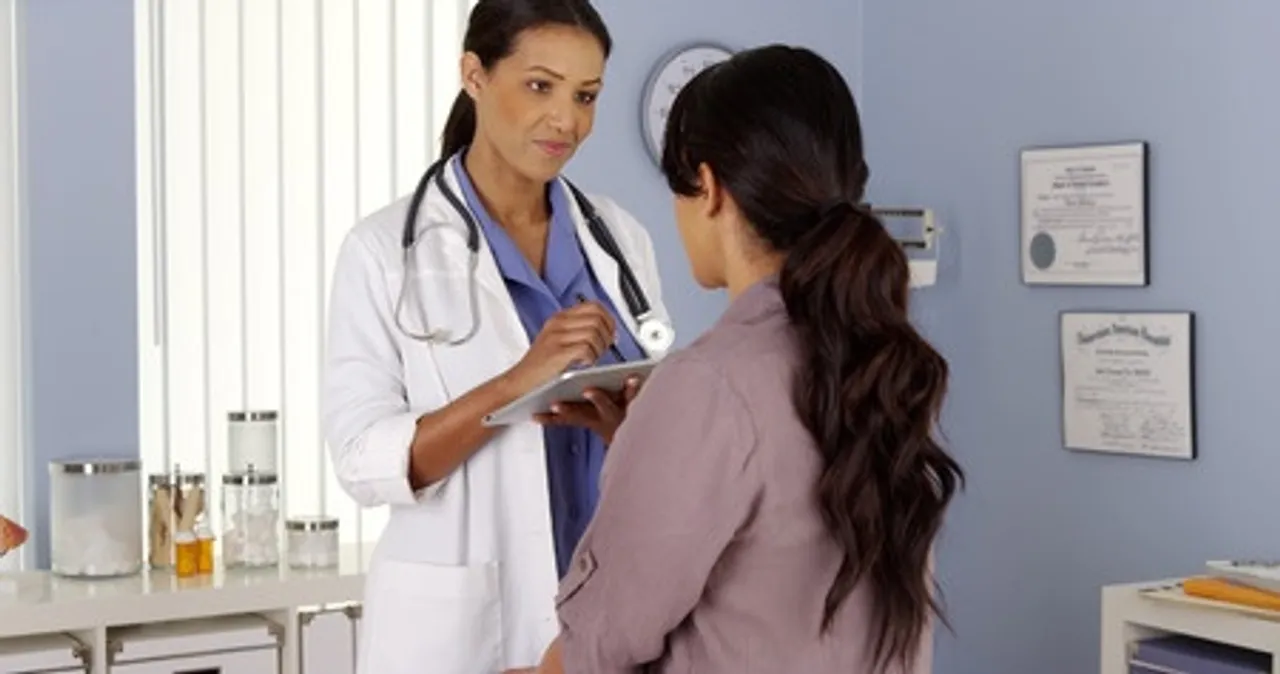Top Ten Reasons Physician Assistant is a Great Career

Mark Adams/123RF.com
So many surveys and business journals come out each year to tell us what we already know in our hearts to be true - we are very lucky to be physician assistants. It’s a great profession. We are given the opportunity to impact the lives of others in a way that touches their lives and challenges ours. Rarely are people able to do that in their careers. If my relatives or friends ask for career advice, which they often do, knowing I am a physician assistant, I always can say with confidence that I don’t have any regrets in becoming a physician assistant. It was never a second choice to becoming a doctor or nurse. Becoming a physician assistant was my first choice, and here are my top ten reasons that being a physician assistant is a great career.
1.) Liberty to Move Fluidly Between Specialties
As a PA, you are fortunate to move from various specialties in medicine as it suits your lifestyle. Physicians, who do a residency in specific specialties, are relegated to that chosen specialty - OB, pediatrics, or oncology, for example, for their entire career, which may lead to burnout. In my own career, I started out on a fast-paced cardiothoracic surgery unit. Then, eager for a new challenge, I switched to oncology, and when my life situation changed and I could no longer work the long days and call schedule that was required of me in oncology, I switched again to a 3-day-a-week emergency medicine job. Most jobs don’t allow this level of versatility. As you get older, your health may change, or you may not have the same level of energy or physical ability to carry out your job. You may have children or other demands. This versatility incorporated into our profession allows PA’s to transition to change from a more demanding specialty to a less demanding specialty.
2.) Physician Assistants Save Lives
How many jobs can you say this about? It is an incredible privilege to know that because of your direct actions, a person is alive and walking the planet. Their loved ones still have them, and they still have a chance to fulfill their hopes and dreams and impact the world. I have patients that still keep in contact with me to update me with their progress. It’s a rare privilege.
3.) A Physician Assistant Degree Actually Guarantees a Good Job
The average new graduate has multiple job offers. Recent NCCPA statistics indicate for 2014 new graduates, 78.1% had multiple job offers, and 52.3% had 3 or more job offers. Further, .2.5% had 6 or more job offers. A degree as a physician assistant strongly correlates now and into the future with great future job prospects. The Bureau of Labor Statistics indicates it is the 13th fastest growing occupation (statistics from 2012, and I believe it has gone up since then) with 38% job growth.
4.) Earning Potential
Physician assistants not only have good job growth, but good salaries as well. Salaries vary by specialty, city, and years of experience, with surgical subspecialties often paying more and experienced PA’s earning more money. However, the median salary according the BLS as of 2012 is $90,930. In research by Payscale.com, pediatric physician assistants earned the smallest salary at $78,640 in 2014. In further studies by the BLS (May 2013), the highest paying cities were:
- Vero Beach, FL: $167,400
- Santa Fe, NM: $156,950
- Texarkana, TX: $140,650
- Flint, MI: $132,900
5.) Generous Loan Repayment and Scholarship Opportunities
With the growing demand for physician assistants, many governmental agencies offer generous loan repayment programs or scholarship programs in return for short (usually 2 years) service commitments. This is a terrific way to mitigate student loan debt unavailable to most college students. It’s a great feeling to get that statement from Citibank thanking you for “your recent payment of 70,000 dollars.” These programs are available from all branches of the Army, National Guard, other branches of the military, the VA, Indian Health Services, and other public health services. Contact your local government agency for more details.
6.) High Job Satisfaction
CNN rated the physician assistant with an “A” for job satisfaction. Physician assistants are generally perceived to have a very high degree of job satisfaction, as referenced by the article featured in JAPPA entitled “Life Satisfaction for Physician Assistants” in May of 2014. I feel the combination of performing a valued function, being well compensated, patient appreciation, having a valued human connection with patients, and the feeling of making a difference in the world contribute to this feeling of job satisfaction.
7.) Relationship with your Supervising Physician
By and large, having a supervising relationship permits you the opportunity to have life-long learning, the opportunity to bounce ideas off someone if you need a second opinion, and a safety net in challenging cases. A good supervising physician is a trusted confidante, a patient teacher, and someone willing to push you beyond your comfort zone in order for you to gain competencies you never dreamed you would achieve. The PA adage, “See one, do one, teach one” really applies. When working with your supervising physician, you can gain mastery of procedures and diseases that once intimidated you. When someone “has your back,” it makes it easier to fly.
8.) Work-Life Balance
Most physician assistants are fortunate to enjoy a great work- life balance. The majority of PA’s work in either primary care with a basic 9-5 work day or ED/UC with 3-4 day work week, allowing for plenty of free time to enjoy family and recreational activities. They are not often mandated to take call or to cover hospital patients.
9.) Shorter Time in School/Training
Physician assistant training typically involves obtaining a Master’s degree, prior healthcare experience, and volunteer hours. It is a grueling program, no doubt about it, but it is shorter than medical school, and there is no mandatory residency program to complete. This translates into less debt and a decreased financial burden when you complete your degree.
10.) Decreased Medical Malpractice Litigation
Research shows that physician assistants are less likely to be sued for medical malpractice than physicians or advance practice nurses (Nicholson, 2008). Also, supervision-physician and physician assistant teams were less likely to be sued for medical malpractice than solo practicing physicians (Medical Economics, 2011). This may be related to the rationale mentioned above of having a second set of eyes/ears with which to discuss difficult cases or the extra opportunity to catch something that may have been missed. I know this has been my experience on several occasions during my career.
Having done some cursory research for this article and reflected on my own experiences, I have a renewed appreciation for the career I pledged myself to so many years ago. My career is full of so many fond memories helping patients and great moments teaching future physician assistant students. Our numbers may be small, but our impact is great.
Ready to Begin Your Job Search?
View all of our Physician Assistant jobs posted by top employers from around the country.
Related Posts
